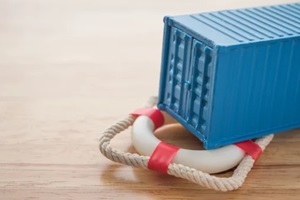 Marine insurance for New York provides an essential safeguard for maritime activities of all types in the state. With over 7,500 miles of coastline and a vibrant aquatic environment, including major waterways such as the Hudson River and Great Lakes, marine insurance is key to protecting vessels and operations on the state’s abundant waters.
Marine insurance for New York provides an essential safeguard for maritime activities of all types in the state. With over 7,500 miles of coastline and a vibrant aquatic environment, including major waterways such as the Hudson River and Great Lakes, marine insurance is key to protecting vessels and operations on the state’s abundant waters.
This article will equip you to navigate the challenging yet imperative task of protecting your vessel in New York.
What New Yorkers Should Know About Marine Insurance
Marine insurance policies cover loss or damage to boats and ships and liabilities associated with owning and operating vessels in New York.
Boating is a popular recreational activity and an important mode of transport for commercial purposes, and marine insurance gives owners peace of mind by providing financial protection against collisions, sinking, fires, piracy, and other risks.
The unique nature of maritime perils and the high values of boats and cargo make marine insurance essential. It offers vessel owners and operators coverage that is tailored to risks on the water.
Without a good insurance policy, one incident can result in crippling expenses. Marine insurance has a long history in New York, given its strategic location and extensive coastline.
While not mandatory, lenders often require boat owners to have insurance. Marinas may also ask you to prove that you have insurance before permitting you to dock your vessel.
Liability coverage is paramount for businesses such as fishing charters that carry passengers. With the right policy from a specialized insurer, maritime enthusiasts and businesses can continue benefiting from New York’s beautiful waters with added financial security.
Types of Marine Insurance Policies: From Personal Boats to Commercial Vessels
You can get a wide range of marine insurance policies in New York that are suitable for individual and commercial needs. Key policy types include:
Personal Boat Insurance
Personal boat insurance covers privately owned recreational crafts such as motorboats, sailboats, yachts, and jet skis. It typically covers:
-
- Hull damage from collision, sinking, capsizing, or similar events
- Damage to machinery, such as the engine and electronics
- Theft of boat and accessories
- Liability for third-party bodily harm or property damage
- Emergency towing, fuel delivery, and on-water assistance
- Medical payments for injuries to you, family, and guests
Commercial Marine Insurance
Commercial marine insurance is tailored to businesses and their specialized assets and activities. Besides fishing and shipping vessels, it can cover marinas, boatyards, marine contractors, ports, and dockside operations.
Typical policies include:
 Protection and indemnity cover third-party liabilities from operating vessels, such as injury, loss of life, cargo damage, and more.
Protection and indemnity cover third-party liabilities from operating vessels, such as injury, loss of life, cargo damage, and more.- Hull & machinery: Insures against physical damage to vessels and onboard equipment.
- Cargo coverage: Protects goods in transit by sea against loss/damage.
- Marina operators liability: Covers legal liabilities of marina owners, including fuel spills.
A knowledgeable insurance agent can assist businesses in securing customized protection based on their maritime risks.
What’s The Right Insurance Coverage for Your Maritime Needs In New York?
Choosing adequate marine insurance involves understanding your specific vessel, usage, and storage needs. Key factors determining the right policy are:
Vessel Type
The characteristics of your boat or ship dictate what type of coverage you need and how much. Faster powerboats have higher risks than slower sailboats.
Commercial ships require specialty cargo or P&I policies. Older vessels may need more coverage than newer ones.
Usage
How you use your boat also impacts your ideal insurance options. Occasional recreational use on inland lakes has lower risks than daily commercial fishing trips offshore. Chartering passengers requires liability coverage.
Storage and Mooring Location
The location and storage conditions of your boat affect exposure to damages. Vessels left year-round on waterfront docks face more perils than those stored indoors in winter. Geographic factors such as busy ports also raise concerns.
In addition to these parameters, your driving record, claims history, and budget will influence the type of marine policy that works best.
Understanding Exclusions and Limitations in Marine Insurance
While marine insurance provides extensive protection, every policy contains exclusions and limitations. Carefully reviewing these items is imperative to ensure you have adequate coverage.
Common exclusions are:
- Normal wear and tear or corrosion damage
- Mechanical failures and lack of maintenance
- Losses occurring outside agreed navigation limits
- Vessel use for illegal activities
- Damages from war, nuclear causes, or terrorism
Understanding applicable limits is also important:
- Liability coverage may max out at $500,000 without added umbrella insurance
- Deductibles require paying some costs out of pocket
- Caps may exist on specific coverages such as towing or emergency services
For comprehensive protection, work with your agent to minimize gaps stemming from exclusions and limits.
The Claims and Compensation Process
In case of an insured loss, following the right protocols can make the claims process smoother. Key steps include the following:
 Notify your insurer promptly, ideally within 48 hours. Provide details of the damage, location, and other relevant details.
Notify your insurer promptly, ideally within 48 hours. Provide details of the damage, location, and other relevant details.- Take reasonable steps to prevent further loss, such as removing a damaged boat from the water.
- For major damage, have a marine surveyor assess the situation. Retain damaged parts for inspection.
- Submit a written loss report with specifics, including date, time, witnesses, police reports, and other important information.
- Share photographs, inspection reports, replacement quotes, proof of ownership, and any required documents.
- Keep copies of all claim documents for your records. Respond promptly to any additional requests.
- After reviewing the claim, the insurer will confirm coverage and acceptance of your claim or rejection if the damage is excluded.
- The insurer will pay either repair costs or agreed value for approved claims depending on policy terms.
- Processing times vary based on claim complexity and volume. Stay in touch for updates.
- While the claims process demands time and effort, the payout makes it worthwhile by covering your losses.
New Yorkers Can Start Their Marine Insurance Coverage Today with JMG Insurance
Secure Your Maritime Ventures with Expert Insurance Guidance from JMG Insurance Agency. Marine insurance covers many aquatic assets and activities in New York’s abundant waters—partner with John M. Glover Insurance Agency to secure your maritime investments fully.
Our team’s marine insurance expertise will help you identify risks, customize coverage, and simplify claims. Don’t leave your boats, ships, or marine business unprotected.
Contact us today at 1-844-304-7332 or online for trusted advice on marine insurance for New York’s unique maritime landscape.



